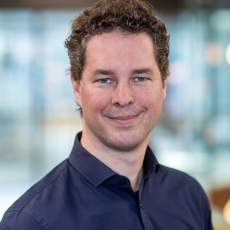Background and justification of the project
This project started in 2013 when, in the context of 3TU collaboration in the master Embedded Systems, a number of courses were given in the form of telelectures.
Students in Delft, Twente and Eindhoven would follow the same lecture at the same time, through a television connection.
A challenging factor in this type of teaching, was the technical support and amount of coordination necessary to make such lectures go smoothly. As a possible remedy, we experimented with a flipped classroom. Lectures were pre-recorded in the studio, and the classroom hours were used to discuss exercises and ask questions.
Objectives and expected outcomes
At first, the objective was to ensure that the essential material for this course was taught under better controlled circumstances.
In 2015 the project was scaled up to include a MOOC on the course material, to make it possible for EIT-students world-wide to follow the course as well and benefit from the additional exposure TU/e gets by publishing MOOCs.
Project design and management
Three teachers, Pieter Cuijpers (TU/e), Anne Remke (UT), and Marielle Stoelinga (UT), initially produced lectures by either recording them live in the studio, or by producing voice-over-powerpoints. Later, when this turned out successful, Pieter and Anne joined forces with art director John Heijligers to turn these initial recordings into a MOOC. For this, management was in the hands of ESA and the recording studio of TU/e.
Dissemination and sustainability of the project
In 2018, the collaboration between Eindhoven, Delft and Twente regarding this specific course was ended. The videos produced for the MOOC are still used as background material for students, but are not the central source of learning material anymore. The MOOC is still available on the COURSERA platform, but receives little maintenance at the moment.
As a secondary outcome of the project Pieter Cuijpers and John Heijligers developed a small workshop for interested lecturers, on the differences between classroom lectures and weblectures, and how prepare yourself for recording weblectures.
Results and learnings
The Flipped classroom project has run with varying success for 5 years in a row.
The effort put into the videos was appreciated by students, as was the possibility to study the material in a flexible way.
As lessons learned, I would say that, while it is certainly valuable to mix classes and videos in this way, a number of things should be taken into account.
· A MOOC and a Flipped Classroom are two different things. For a MOOC much more attention needs to be paid to the quality of online exercises.
In fact, in a future version, I would first create the online exercises, and only after that start thinking about recording videos.
· Developing a MOOC is just as much work as writing a good book. This means that course material needs to be mature enough before turning it into a MOOC.
This course was very new when we started our recording efforts, which means that the videos are sometimes not explaining material in an optimal way.
Changing the videos turned out to be too much effort, meaning that as a teacher you sometimes get ‘stuck’ with videos that you don’t like anymore.
· Recording a videolecture is a fun and challenging experience that makes you take a fresh look at teaching and is recommended for every teacher to do at least once!
· During the time this project was run, the question has come up a few times whether it was possible to award study-points for following the MOOC by itself.
Our conclusion has everytime been that this is not a good idea. The type of closed questions one can ask on an online platform make it difficult to examine
whether a student is also able to structure their own work. Therefore, not all our learning goals can be achieved through online teaching alone. This was also
reflected in ‘complaints’ from the students that the questions in the exam were of a much higher level than those in the MOOC.
